Cyre Yukon, Executive Director (2025-2026)
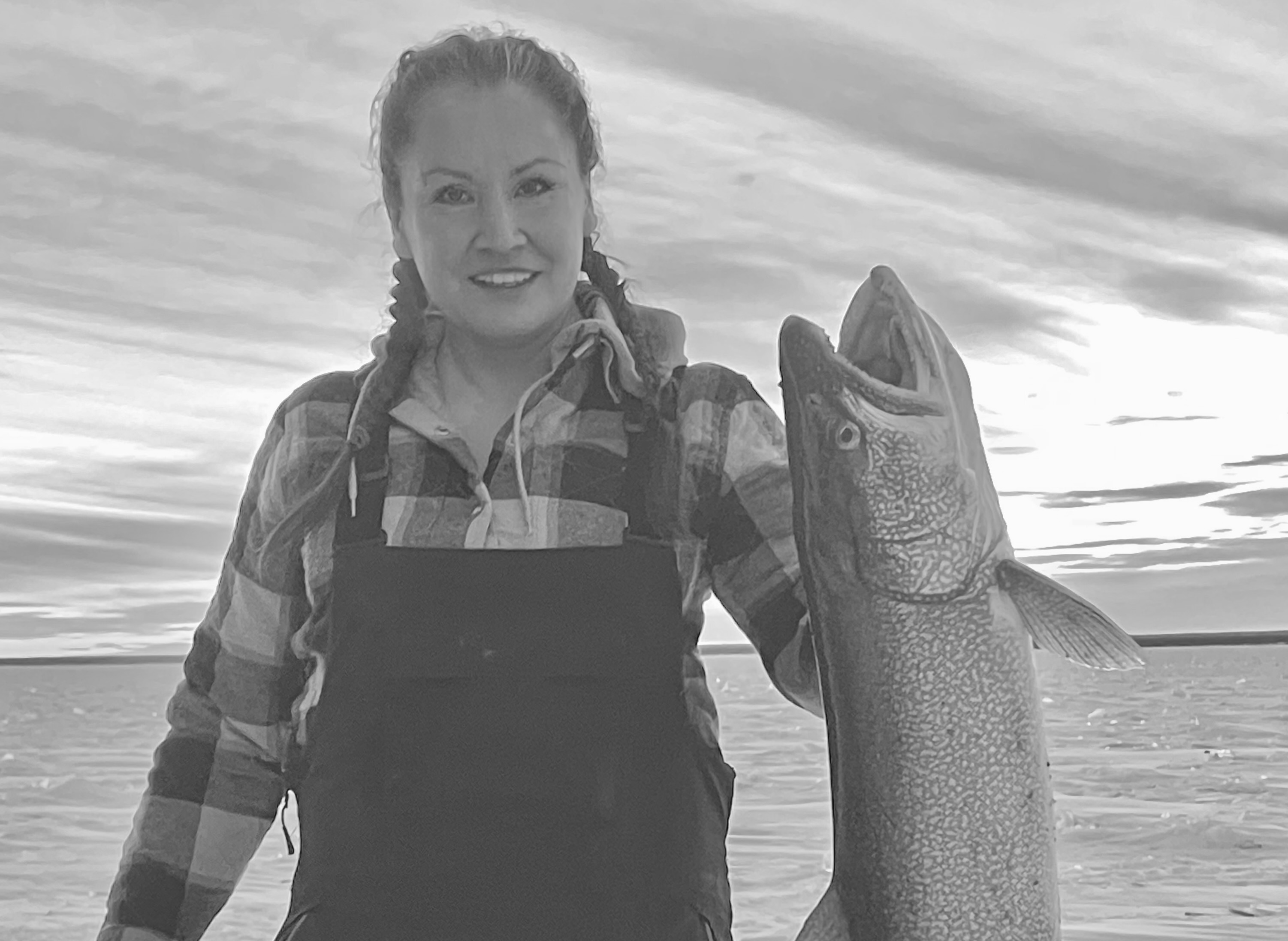 Cyre's career kicked off working with the Délı̨nę Got’ı̨nę Government for 7 years, starting off as an administrator and moving into Operations and Governance. Her journey has been shaped by the opportunities that come with a newly formed government and the need to navigate through unchartered territory. She helped move the SRRB vision and priorities forward. As an experienced administrator, her leadership and experience integrated an indigenous perspective into every aspect of her role ensuring that traditional knowledge, culture, and spirituality are woven into the fabric of the SRRB operations. To help equip herself for this responsibility, Cyre pursued specialized education and training through an indigenous lens. Completing the Indigenous Project Management and Leadership Program at the Banff Centre for Arts and Creativity and recently achieved the designation of Certified Aboriginal Professional Administrator through AFOA Canada. Cyre Yukon’s leadership journey reflected a deep commitment to the values and vision of the people of the Sahtu, balancing traditional knowledge with professional expertise.
Cyre's career kicked off working with the Délı̨nę Got’ı̨nę Government for 7 years, starting off as an administrator and moving into Operations and Governance. Her journey has been shaped by the opportunities that come with a newly formed government and the need to navigate through unchartered territory. She helped move the SRRB vision and priorities forward. As an experienced administrator, her leadership and experience integrated an indigenous perspective into every aspect of her role ensuring that traditional knowledge, culture, and spirituality are woven into the fabric of the SRRB operations. To help equip herself for this responsibility, Cyre pursued specialized education and training through an indigenous lens. Completing the Indigenous Project Management and Leadership Program at the Banff Centre for Arts and Creativity and recently achieved the designation of Certified Aboriginal Professional Administrator through AFOA Canada. Cyre Yukon’s leadership journey reflected a deep commitment to the values and vision of the people of the Sahtu, balancing traditional knowledge with professional expertise.
Stephanie Yuill, Public Listening Session Project Manager (2023-2024)
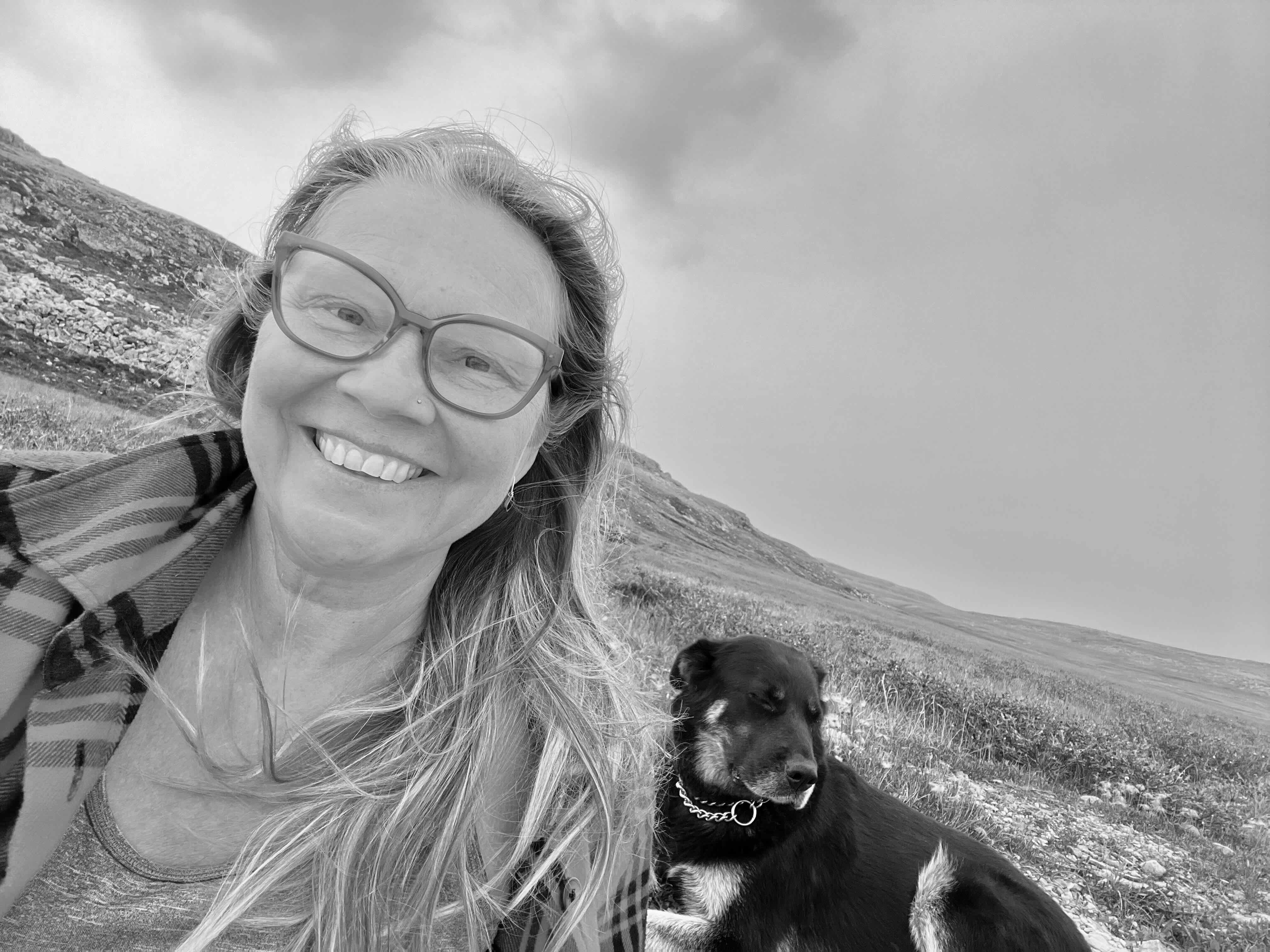 Originally an Ontarian, Stephanie Yuill has worked around the globe; largely in pursuit of the ever-elusive full-time parks job! Protected areas, the environment and education make up her second career having spent 20 plus years as a waitress (which she still misses). She earned a Bachelor of Arts from the University of Waterloo and a Master’s of Science from Texas A&M (her thesis was on educating people about sites of death and disaster). After stints in Ontario, Texas, Alberta and Queensland, she finally landed in Yellowknife in 2007 as the Manager of Operations for NWT Parks. She went back to her love of environmental education in 2010 where she was education coordinator for ENR until 2020. Stephanie just moved back to Yellowknife August 2023 (inconveniently on the day of the city-wide evacuation) after three years in Paulatuk, managing Tuktut Nogait National Park. When she’s not working, you can find her in her canoe, with her dog, in the theatre, reading a book, entering oatmeal making championships, skiing or walking. Long walks. Very long walks. Very, very long walks.
Originally an Ontarian, Stephanie Yuill has worked around the globe; largely in pursuit of the ever-elusive full-time parks job! Protected areas, the environment and education make up her second career having spent 20 plus years as a waitress (which she still misses). She earned a Bachelor of Arts from the University of Waterloo and a Master’s of Science from Texas A&M (her thesis was on educating people about sites of death and disaster). After stints in Ontario, Texas, Alberta and Queensland, she finally landed in Yellowknife in 2007 as the Manager of Operations for NWT Parks. She went back to her love of environmental education in 2010 where she was education coordinator for ENR until 2020. Stephanie just moved back to Yellowknife August 2023 (inconveniently on the day of the city-wide evacuation) after three years in Paulatuk, managing Tuktut Nogait National Park. When she’s not working, you can find her in her canoe, with her dog, in the theatre, reading a book, entering oatmeal making championships, skiing or walking. Long walks. Very long walks. Very, very long walks.
Michael Henning, Executive Director (2023)
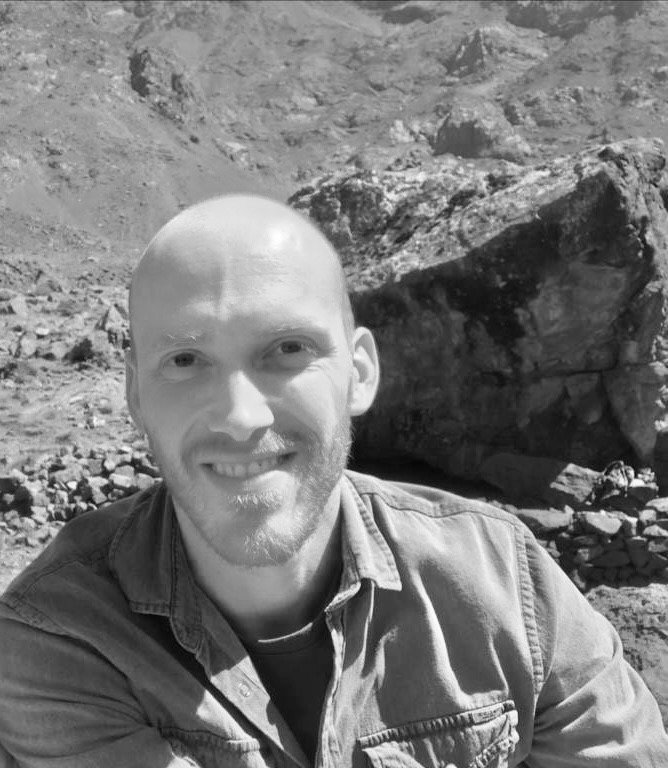 Michael grew up in Ontario and began his career working for the Ontario Ministry of Natural Resources where he patrolled remote backcountry areas along the shores of Georgian Bay by canoe, helicopter, small vessel and on foot. Michael later went on to become a lawyer. He holds a law degree and an additional master’s degree in commercial law. Michael’s career as a lawyer saw him live and work abroad for nearly a decade. He lived and worked in Europe, the Middle East and Africa before returning to Canada in 2023. His experience as a lawyer includes having previously worked for the United Nations, a prominent global law firm, an investment bank, and a national government. Michael served as Executive Director from October-December 2023.
Michael grew up in Ontario and began his career working for the Ontario Ministry of Natural Resources where he patrolled remote backcountry areas along the shores of Georgian Bay by canoe, helicopter, small vessel and on foot. Michael later went on to become a lawyer. He holds a law degree and an additional master’s degree in commercial law. Michael’s career as a lawyer saw him live and work abroad for nearly a decade. He lived and worked in Europe, the Middle East and Africa before returning to Canada in 2023. His experience as a lawyer includes having previously worked for the United Nations, a prominent global law firm, an investment bank, and a national government. Michael served as Executive Director from October-December 2023.
Benjamin Dosu, Community Conservation Planner (2022-2023)
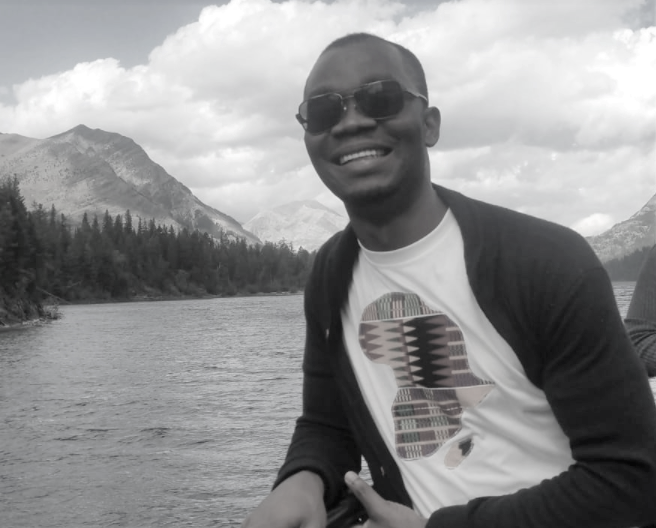 Benjamin is an environmental planner with interests in environmental policies and management, focusing on resource rights for marginalized populations in Canada and Ghana – his native country. Before joining the SRRB in 2021, Ben worked with Indigenous Canadians through teaching and research, and engaged with Indigenous communities, elders, and youth on environmental co-management projects in Alberta and Newfoundland. Benjamin holds a PhD in Biosystems and Biodiversity from the University of Lethbridge, a Master’s degree in Environmental Policy from the Memorial University of Newfoundland, as well as an undergraduate degree in Development Planning from Kumasi, Ghana. Ben Joined the SRRB team in 2021.
Benjamin is an environmental planner with interests in environmental policies and management, focusing on resource rights for marginalized populations in Canada and Ghana – his native country. Before joining the SRRB in 2021, Ben worked with Indigenous Canadians through teaching and research, and engaged with Indigenous communities, elders, and youth on environmental co-management projects in Alberta and Newfoundland. Benjamin holds a PhD in Biosystems and Biodiversity from the University of Lethbridge, a Master’s degree in Environmental Policy from the Memorial University of Newfoundland, as well as an undergraduate degree in Development Planning from Kumasi, Ghana. Ben Joined the SRRB team in 2021.
Alyssa Bougie, Research Manager (2021-2022)
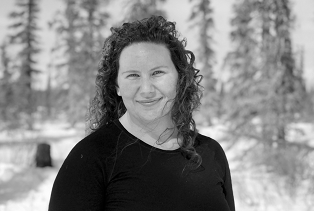 Alyssa Bougie grew up in British Columbia. She graduated with a Bachelor of Science in Biology from the University of the Fraser Valley in 2016. Through her studies, she discovered a passion for working cross-culturally during an internship in India focused on public health and urban gardening. Afterwards, Alyssa worked engaging the public on the environment in urban landscapes and in protected areas. In 2017, she moved to Germany, where she obtained a Master of Science in Landscape Ecology from the University of Hohenheim. There, she gained an understanding of different approaches to community-driven conservation across the globe. Alyssa believes strong relationships between people and nature are key to mitigating many of the world’s challenges, and she is very eager to support Sahtú communities in their work. Alyssa joined the SRRB team in 2021.
Alyssa Bougie grew up in British Columbia. She graduated with a Bachelor of Science in Biology from the University of the Fraser Valley in 2016. Through her studies, she discovered a passion for working cross-culturally during an internship in India focused on public health and urban gardening. Afterwards, Alyssa worked engaging the public on the environment in urban landscapes and in protected areas. In 2017, she moved to Germany, where she obtained a Master of Science in Landscape Ecology from the University of Hohenheim. There, she gained an understanding of different approaches to community-driven conservation across the globe. Alyssa believes strong relationships between people and nature are key to mitigating many of the world’s challenges, and she is very eager to support Sahtú communities in their work. Alyssa joined the SRRB team in 2021.
Lex Scully, On the Land Program Manager (2019-2020)
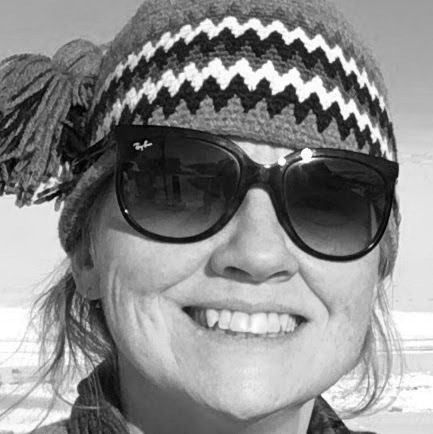
Lex Scully is a moola of mixed Celtic ancestry. Originally from Toronto, she has spent most of her summers learning, working and guiding in Anishinaabe territories. Her love for these Lands led to an undergraduate degree in Indigenous Studies at Trent University, where many of her teachers were Anishinaabe and Hodinohsyo:ni Elders and knowledge holders. Later, Lex earned her Master’s of Environmental Studies (MES) at York University in 2007.
Lex’s doctoral work (2018) was in Indigenous education in teacher education at Lakehead University, where she still teaches, now online. In February of 2017, she moved to Inukjuak, Nunavik, to work for the Land Survival and Culture department of Kativik Ilisarniliriniq (KI), moving to Montreal to work for the Adult Education and Vocational Training department of KI in late 2018. Traffic and cubicle life were not for her, and she leapt at the opportunity to join the SRRB as On the Land Program Manager. Lex currently lives in Tulit’a, and is very happy about it. Also, she really, really loves plants and music.
Kirsten Jensen, Program Manager (2018-2021)
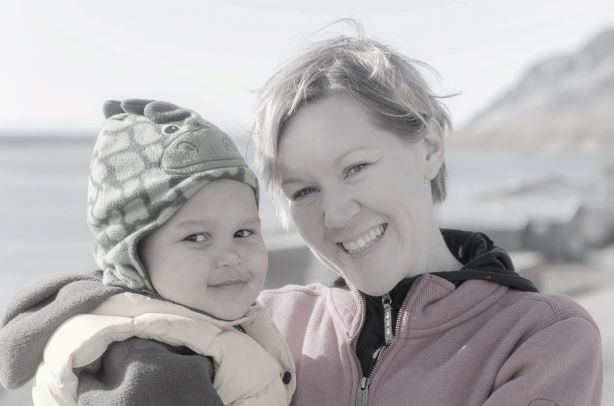 Kirsten Jensen was born and raised in Saskatchewan. She always had a sense of adventure and ended up moving to southern Ontario to get a degree in Environment and Business at the University of Waterloo. Upon completing her B.E.S. she got an internship with a Canadian NGO in Nairobi, Kenya working with youth and environment issues. Following her internship, Kirsten continued to work in Kenya with the United Nations on youth and partnership challenges. In 2010, she obtained a Masters in Environment and Business Management at the University of Newcastle.
Kirsten Jensen was born and raised in Saskatchewan. She always had a sense of adventure and ended up moving to southern Ontario to get a degree in Environment and Business at the University of Waterloo. Upon completing her B.E.S. she got an internship with a Canadian NGO in Nairobi, Kenya working with youth and environment issues. Following her internship, Kirsten continued to work in Kenya with the United Nations on youth and partnership challenges. In 2010, she obtained a Masters in Environment and Business Management at the University of Newcastle.
In the fall of 2011, she got tired of the perfect weather, and came back to Saskatchewan for a few years to work with the Nature Conservancy of Canada and learn more about the prairies she grew up in, before the adventure itch came back and moved to the Democratic Republic of Congo to help manage the world’s second largest forested national park (Salonga National Park). Following the birth of her son, Tiree, she decided to be closer to family and moved back to Saskatchewan in 2017. But that adventure itch struck again, and Kirsten and Tiree jumped at the chance to move northward and support the Sahtú region’s vision for their land using her experience with partnerships, community development and managing large landscapes. Kirsten is now working in Saskatchewan.
Joe Hanlon, Program Coordinator (2013-2019)
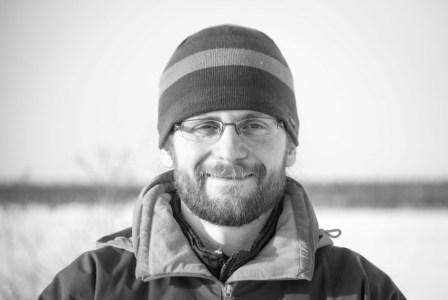 Joe Hanlon received a BA in Anthropology from Dartmouth College in 2005. His background is in community-based social science and public health research. Joe has also worked as a high school science teacher and he has experience in outdoor education and emergency medicine. Joe co-ordinated the SRRB's research, meetings, and workshops with the five Sahtú RRCs and other partners in the region. He also assisted the RRCs with issues relating to fulfilling their land claim mandate. Joe worked for the SRRB from 2013 to 2019.
Joe Hanlon received a BA in Anthropology from Dartmouth College in 2005. His background is in community-based social science and public health research. Joe has also worked as a high school science teacher and he has experience in outdoor education and emergency medicine. Joe co-ordinated the SRRB's research, meetings, and workshops with the five Sahtú RRCs and other partners in the region. He also assisted the RRCs with issues relating to fulfilling their land claim mandate. Joe worked for the SRRB from 2013 to 2019.
Reanna Campbell, Health and Climate Change Program Coordinator (2013-2014)
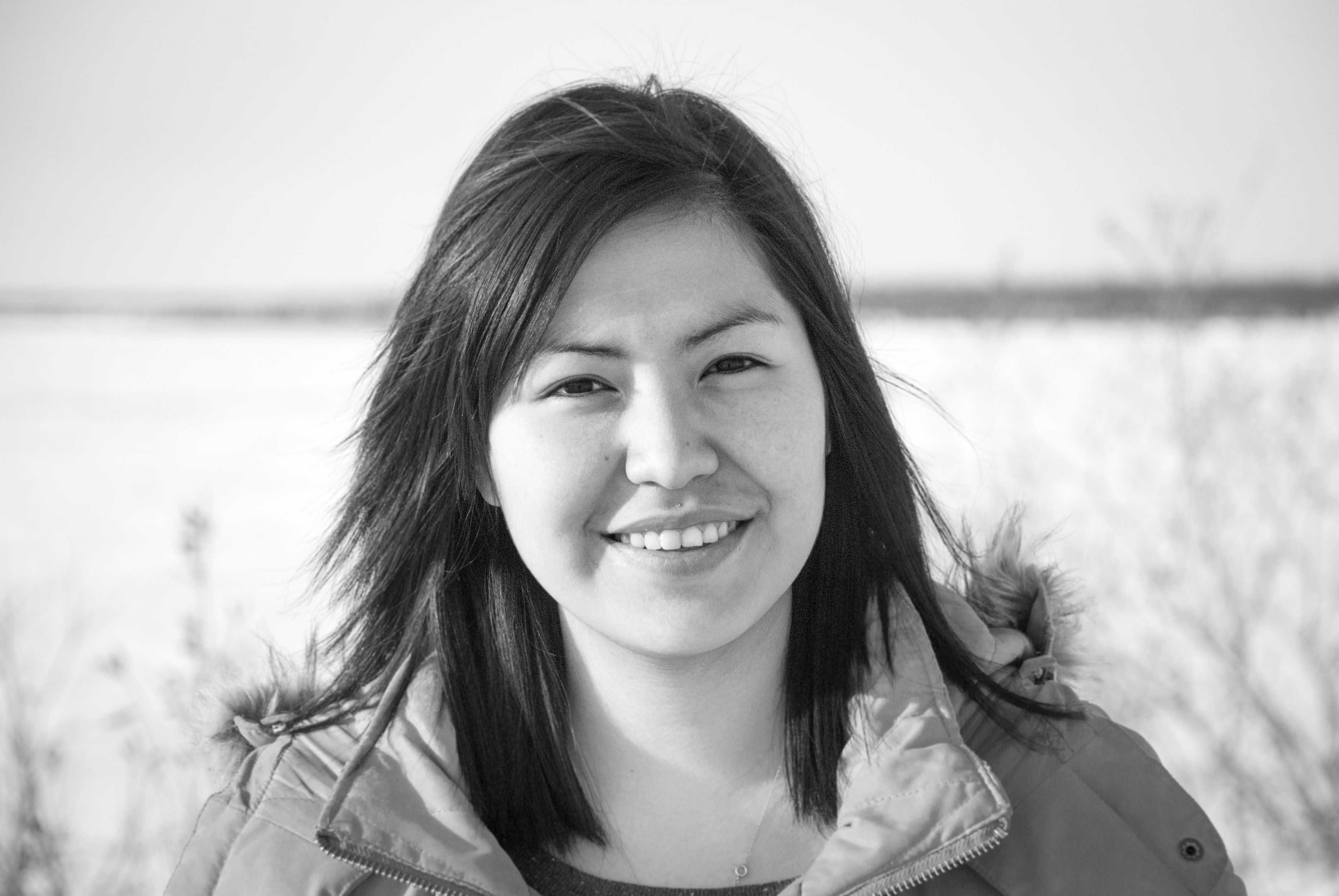 Reanna Campbell grew up in Tulita, NT. She spent a year being mentored in a variety of positions around the community, and has done work in Tulita's employment office, Parks Canada office, and health clinic. Reanna is interested in pursuing a degree in native education. Reanna coordinated the SRRB's Health and Climate Change project.
Reanna Campbell grew up in Tulita, NT. She spent a year being mentored in a variety of positions around the community, and has done work in Tulita's employment office, Parks Canada office, and health clinic. Reanna is interested in pursuing a degree in native education. Reanna coordinated the SRRB's Health and Climate Change project.
Deborah Simmons, Executive Director (2012-2022)
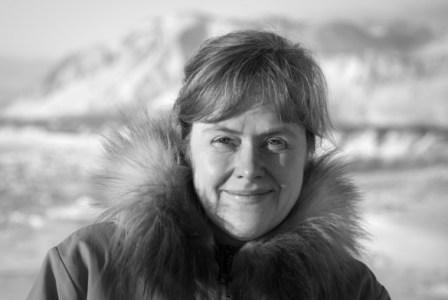 Dr. Deborah Simmons was a trained as a social scientist specialising in social and environmental issues relating to Indigenous peoples. She was raised in the Northwest Territories and completed her doctorate in the field of Native Studies at York University. Deborah had been involved in interdisciplinary research combining traditional knowledge and science in the Sahtú Region since 1999, including work for the Sahtú Land Use Planning Board and Délı̨nę Uranium Team (Dene Náowérǝ́ Chets’elǝ) and Délı̨nę Knowledge Project. She was an Adjunct Professor in the School of Public Health and Health Systems at University of Waterloo, and Special Graduate Faculty at Trent University in Environmental and Life Sciences at Trent University. She welcomed opportunities to mentor graduate students interested in pursuing Sahtú-based research to support preservation of both wildlife and Dene and Métis ways of life. In implementing vision, goals and objectives of the Board, she remained actively involved in community-collaborative research and conservation planning. She helped to found the Nę K’ǝ Dene Ts’ı̨lı̨ (Living on the Land) Forum. She was a member of the NWT Species At Risk Committee and Canadian Mountain Network, and helped to represent the Board on the NWT Conference of Management Authorities (CMA) on Species At Risk and the Advisory Committee for Cooperation on Wildlife Management (ACCWM).
Dr. Deborah Simmons was a trained as a social scientist specialising in social and environmental issues relating to Indigenous peoples. She was raised in the Northwest Territories and completed her doctorate in the field of Native Studies at York University. Deborah had been involved in interdisciplinary research combining traditional knowledge and science in the Sahtú Region since 1999, including work for the Sahtú Land Use Planning Board and Délı̨nę Uranium Team (Dene Náowérǝ́ Chets’elǝ) and Délı̨nę Knowledge Project. She was an Adjunct Professor in the School of Public Health and Health Systems at University of Waterloo, and Special Graduate Faculty at Trent University in Environmental and Life Sciences at Trent University. She welcomed opportunities to mentor graduate students interested in pursuing Sahtú-based research to support preservation of both wildlife and Dene and Métis ways of life. In implementing vision, goals and objectives of the Board, she remained actively involved in community-collaborative research and conservation planning. She helped to found the Nę K’ǝ Dene Ts’ı̨lı̨ (Living on the Land) Forum. She was a member of the NWT Species At Risk Committee and Canadian Mountain Network, and helped to represent the Board on the NWT Conference of Management Authorities (CMA) on Species At Risk and the Advisory Committee for Cooperation on Wildlife Management (ACCWM).
 Cyre's career kicked off working with the Délı̨nę Got’ı̨nę Government for 7 years, starting off as an administrator and moving into Operations and Governance. Her journey has been shaped by the opportunities that come with a newly formed government and the need to navigate through unchartered territory. She helped move the SRRB vision and priorities forward. As an experienced administrator, her leadership and experience integrated an indigenous perspective into every aspect of her role ensuring that traditional knowledge, culture, and spirituality are woven into the fabric of the SRRB operations. To help equip herself for this responsibility, Cyre pursued specialized education and training through an indigenous lens. Completing the Indigenous Project Management and Leadership Program at the Banff Centre for Arts and Creativity and recently achieved the designation of Certified Aboriginal Professional Administrator through AFOA Canada. Cyre Yukon’s leadership journey reflected a deep commitment to the values and vision of the people of the Sahtu, balancing traditional knowledge with professional expertise.
Cyre's career kicked off working with the Délı̨nę Got’ı̨nę Government for 7 years, starting off as an administrator and moving into Operations and Governance. Her journey has been shaped by the opportunities that come with a newly formed government and the need to navigate through unchartered territory. She helped move the SRRB vision and priorities forward. As an experienced administrator, her leadership and experience integrated an indigenous perspective into every aspect of her role ensuring that traditional knowledge, culture, and spirituality are woven into the fabric of the SRRB operations. To help equip herself for this responsibility, Cyre pursued specialized education and training through an indigenous lens. Completing the Indigenous Project Management and Leadership Program at the Banff Centre for Arts and Creativity and recently achieved the designation of Certified Aboriginal Professional Administrator through AFOA Canada. Cyre Yukon’s leadership journey reflected a deep commitment to the values and vision of the people of the Sahtu, balancing traditional knowledge with professional expertise. 



 Originally an Ontarian, Stephanie Yuill has worked around the globe; largely in pursuit of the ever-elusive full-time parks job! Protected areas, the environment and education make up her second career having spent 20 plus years as a waitress (which she still misses). She earned a Bachelor of Arts from the University of Waterloo and a Master’s of Science from Texas A&M (her thesis was on educating people about sites of death and disaster). After stints in Ontario, Texas, Alberta and Queensland, she finally landed in Yellowknife in 2007 as the Manager of Operations for NWT Parks. She went back to her love of environmental education in 2010 where she was education coordinator for ENR until 2020. Stephanie just moved back to Yellowknife August 2023 (inconveniently on the day of the city-wide evacuation) after three years in Paulatuk, managing Tuktut Nogait National Park. When she’s not working, you can find her in her canoe, with her dog, in the theatre, reading a book, entering oatmeal making championships, skiing or walking. Long walks. Very long walks. Very, very long walks.
Originally an Ontarian, Stephanie Yuill has worked around the globe; largely in pursuit of the ever-elusive full-time parks job! Protected areas, the environment and education make up her second career having spent 20 plus years as a waitress (which she still misses). She earned a Bachelor of Arts from the University of Waterloo and a Master’s of Science from Texas A&M (her thesis was on educating people about sites of death and disaster). After stints in Ontario, Texas, Alberta and Queensland, she finally landed in Yellowknife in 2007 as the Manager of Operations for NWT Parks. She went back to her love of environmental education in 2010 where she was education coordinator for ENR until 2020. Stephanie just moved back to Yellowknife August 2023 (inconveniently on the day of the city-wide evacuation) after three years in Paulatuk, managing Tuktut Nogait National Park. When she’s not working, you can find her in her canoe, with her dog, in the theatre, reading a book, entering oatmeal making championships, skiing or walking. Long walks. Very long walks. Very, very long walks.  Michael grew up in Ontario and began his career working for the Ontario Ministry of Natural Resources where he patrolled remote backcountry areas along the shores of Georgian Bay by canoe, helicopter, small vessel and on foot. Michael later went on to become a lawyer. He holds a law degree and an additional master’s degree in commercial law. Michael’s career as a lawyer saw him live and work abroad for nearly a decade. He lived and worked in Europe, the Middle East and Africa before returning to Canada in 2023. His experience as a lawyer includes having previously worked for the United Nations, a prominent global law firm, an investment bank, and a national government. Michael served as Executive Director from October-December 2023.
Michael grew up in Ontario and began his career working for the Ontario Ministry of Natural Resources where he patrolled remote backcountry areas along the shores of Georgian Bay by canoe, helicopter, small vessel and on foot. Michael later went on to become a lawyer. He holds a law degree and an additional master’s degree in commercial law. Michael’s career as a lawyer saw him live and work abroad for nearly a decade. He lived and worked in Europe, the Middle East and Africa before returning to Canada in 2023. His experience as a lawyer includes having previously worked for the United Nations, a prominent global law firm, an investment bank, and a national government. Michael served as Executive Director from October-December 2023.  Benjamin is an environmental planner with interests in environmental policies and management, focusing on resource rights for marginalized populations in Canada and Ghana – his native country. Before joining the SRRB in 2021, Ben worked with Indigenous Canadians through teaching and research, and engaged with Indigenous communities, elders, and youth on environmental co-management projects in Alberta and Newfoundland. Benjamin holds a PhD in Biosystems and Biodiversity from the University of Lethbridge, a Master’s degree in Environmental Policy from the Memorial University of Newfoundland, as well as an undergraduate degree in Development Planning from Kumasi, Ghana. Ben Joined the SRRB team in 2021.
Benjamin is an environmental planner with interests in environmental policies and management, focusing on resource rights for marginalized populations in Canada and Ghana – his native country. Before joining the SRRB in 2021, Ben worked with Indigenous Canadians through teaching and research, and engaged with Indigenous communities, elders, and youth on environmental co-management projects in Alberta and Newfoundland. Benjamin holds a PhD in Biosystems and Biodiversity from the University of Lethbridge, a Master’s degree in Environmental Policy from the Memorial University of Newfoundland, as well as an undergraduate degree in Development Planning from Kumasi, Ghana. Ben Joined the SRRB team in 2021. Alyssa Bougie grew up in British Columbia. She graduated with a Bachelor of Science in Biology from the University of the Fraser Valley in 2016. Through her studies, she discovered a passion for working cross-culturally during an internship in India focused on public health and urban gardening. Afterwards, Alyssa worked engaging the public on the environment in urban landscapes and in protected areas. In 2017, she moved to Germany, where she obtained a Master of Science in Landscape Ecology from the University of Hohenheim. There, she gained an understanding of different approaches to community-driven conservation across the globe. Alyssa believes strong relationships between people and nature are key to mitigating many of the world’s challenges, and she is very eager to support Sahtú communities in their work. Alyssa joined the SRRB team in 2021.
Alyssa Bougie grew up in British Columbia. She graduated with a Bachelor of Science in Biology from the University of the Fraser Valley in 2016. Through her studies, she discovered a passion for working cross-culturally during an internship in India focused on public health and urban gardening. Afterwards, Alyssa worked engaging the public on the environment in urban landscapes and in protected areas. In 2017, she moved to Germany, where she obtained a Master of Science in Landscape Ecology from the University of Hohenheim. There, she gained an understanding of different approaches to community-driven conservation across the globe. Alyssa believes strong relationships between people and nature are key to mitigating many of the world’s challenges, and she is very eager to support Sahtú communities in their work. Alyssa joined the SRRB team in 2021.
 Kirsten Jensen was born and raised in Saskatchewan. She always had a sense of adventure and ended up moving to southern Ontario to get a degree in Environment and Business at the University of Waterloo. Upon completing her B.E.S. she got an internship with a Canadian NGO in Nairobi, Kenya working with youth and environment issues. Following her internship, Kirsten continued to work in Kenya with the United Nations on youth and partnership challenges. In 2010, she obtained a Masters in Environment and Business Management at the University of Newcastle.
Kirsten Jensen was born and raised in Saskatchewan. She always had a sense of adventure and ended up moving to southern Ontario to get a degree in Environment and Business at the University of Waterloo. Upon completing her B.E.S. she got an internship with a Canadian NGO in Nairobi, Kenya working with youth and environment issues. Following her internship, Kirsten continued to work in Kenya with the United Nations on youth and partnership challenges. In 2010, she obtained a Masters in Environment and Business Management at the University of Newcastle. Joe Hanlon received a BA in Anthropology from Dartmouth College in 2005. His background is in community-based social science and public health research. Joe has also worked as a high school science teacher and he has experience in outdoor education and emergency medicine. Joe co-ordinated the SRRB's research, meetings, and workshops with the five Sahtú RRCs and other partners in the region. He also assisted the RRCs with issues relating to fulfilling their land claim mandate. Joe worked for the SRRB from 2013 to 2019.
Joe Hanlon received a BA in Anthropology from Dartmouth College in 2005. His background is in community-based social science and public health research. Joe has also worked as a high school science teacher and he has experience in outdoor education and emergency medicine. Joe co-ordinated the SRRB's research, meetings, and workshops with the five Sahtú RRCs and other partners in the region. He also assisted the RRCs with issues relating to fulfilling their land claim mandate. Joe worked for the SRRB from 2013 to 2019. Reanna Campbell grew up in Tulita, NT. She spent a year being mentored in a variety of positions around the community, and has done work in Tulita's employment office, Parks Canada office, and health clinic. Reanna is interested in pursuing a degree in native education. Reanna coordinated the SRRB's Health and Climate Change project.
Reanna Campbell grew up in Tulita, NT. She spent a year being mentored in a variety of positions around the community, and has done work in Tulita's employment office, Parks Canada office, and health clinic. Reanna is interested in pursuing a degree in native education. Reanna coordinated the SRRB's Health and Climate Change project.  Dr. Deborah Simmons was a trained as a social scientist specialising in social and environmental issues relating to Indigenous peoples. She was raised in the Northwest Territories and completed her doctorate in the field of Native Studies at York University. Deborah had been involved in interdisciplinary research combining traditional knowledge and science in the Sahtú Region since 1999, including work for the Sahtú Land Use Planning Board and Délı̨nę Uranium Team (Dene Náowérǝ́ Chets’elǝ) and Délı̨nę Knowledge Project. She was an Adjunct Professor in the School of Public Health and Health Systems at University of Waterloo, and Special Graduate Faculty at Trent University in Environmental and Life Sciences at Trent University. She welcomed opportunities to mentor graduate students interested in pursuing Sahtú-based research to support preservation of both wildlife and Dene and Métis ways of life. In implementing vision, goals and objectives of the Board, she remained actively involved in community-collaborative research and conservation planning. She helped to found the Nę K’ǝ Dene Ts’ı̨lı̨ (Living on the Land) Forum. She was a member of the NWT Species At Risk Committee and Canadian Mountain Network, and helped to represent the Board on the NWT Conference of Management Authorities (CMA) on Species At Risk and the Advisory Committee for Cooperation on Wildlife Management (ACCWM).
Dr. Deborah Simmons was a trained as a social scientist specialising in social and environmental issues relating to Indigenous peoples. She was raised in the Northwest Territories and completed her doctorate in the field of Native Studies at York University. Deborah had been involved in interdisciplinary research combining traditional knowledge and science in the Sahtú Region since 1999, including work for the Sahtú Land Use Planning Board and Délı̨nę Uranium Team (Dene Náowérǝ́ Chets’elǝ) and Délı̨nę Knowledge Project. She was an Adjunct Professor in the School of Public Health and Health Systems at University of Waterloo, and Special Graduate Faculty at Trent University in Environmental and Life Sciences at Trent University. She welcomed opportunities to mentor graduate students interested in pursuing Sahtú-based research to support preservation of both wildlife and Dene and Métis ways of life. In implementing vision, goals and objectives of the Board, she remained actively involved in community-collaborative research and conservation planning. She helped to found the Nę K’ǝ Dene Ts’ı̨lı̨ (Living on the Land) Forum. She was a member of the NWT Species At Risk Committee and Canadian Mountain Network, and helped to represent the Board on the NWT Conference of Management Authorities (CMA) on Species At Risk and the Advisory Committee for Cooperation on Wildlife Management (ACCWM). Phone: 867-374-4040
Phone: 867-374-4040 Email:
Email: